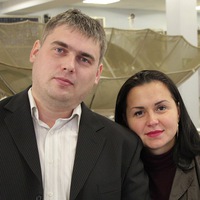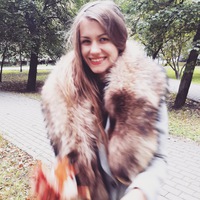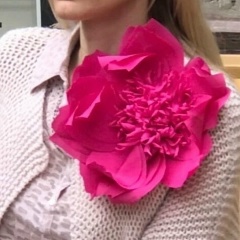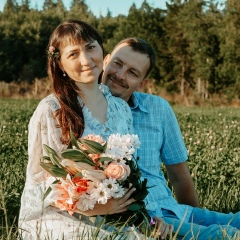Сочи - очень интересный, очень необычный и очень неоднозначный город. Не только для России, но и для мира в целом. Хотя не знаю можно ли считать в полной мере городом множество оторванных друг от друга урбанизированных и сельских территорий, разделённых нацпарком. Площадь городского округа Сочи превосходит Москву, а население меньше в десятки раз.
У Сочи есть очевидный слой - город-курорт. И скрытый - город-дворец.
Кроме того, Сочи - это важный для России символ. Показывает, что государство простирается от вечной мерзлоты до краёв, где шелестят листьями пальмы и плодоносят оливы. Для средиземноморских цивилизаций эти уголки были мрачным холодным туманным северным краем. Территория только в XIX веке отошла к России, тут бушевала малярия, стояли непролазные леса вперемешку с болотами. Но страна, где большая часть жителей обитает в местах, в которых по полгода лежит снег, просто не могла не развить эту климатическую аномалию от первых дач до олимпийских объектов. В целом же, климат здесь таков, что для берёз слишком жарко (они есть, но нужно всё время поливать), а для бананов слишком холодно (они есть, но верхушки пальм погибают во время заморозков).
Про город-курорт всё всем более-менее понятно. Эта линия имеет свои плюсы и минусы. С одной стороны, прокачанный транспорт, очень качественная архитектура разных эпох от северного (!) модерна до хай-тека, благоустройство и в целом удобная для ориентирования инфраструктура. Даже самая красивая хрущёвка страны тоже здесь. Заросший субтропической зеленью фасад Дома архитектора прекрасен. С другой стороны, высокие цены, мелкое жульничество в сфере услуг и тому подобное. И одни из самых страшных архитектурных объектов тоже здесь. От курятников-самостроев для сдачи туристам до Сочи-парка в виде изуродованного Диснейленда.
Город-дворец - неявная тема. Это в XVIII веке летние дворцы и резиденции имело смысл строить за городом, а на зиму перебираться в столицу. Нынешнее развитие авиации, напротив, позволяет элитам быстро и безболезненно перебирать в тёплые края. И Сочи сейчас - Зимний дворец, по своей сути. Сложилось впечатление, что именно Сочи, а не Петербург - второй по значению город в России. Здесь постоянно появляется и президент, и его двор, и кружащиеся вокруг этих концентраторов ресурсов предприниматели со свитой. На олимпийской инфраструктуре постоянно проводятся крупные федеральные мероприятия с чиновниками всех возможных рангов. Здесь крутятся большие бюджетные деньги. Такого количества ботекса, латекса и настоящих Дольче с Габаной как в самолёте Сочи-Москва я не видел ни на рейсах в нашу столицу ни из Милана, ни из Парижа, ни из Рима.
У этого положения опять же есть свои плюсы и минусы. С одной стороны, всё великолепно облагорожено. Отличные дороги, развязки, другие элементы инфраструктуры, которые доступны для всех, а не только для избранных. С другой стороны, огромное количество силовиков, понтов и сопутствующих им подозрительных и презрительных взглядов.
Город в силу особенностей расселения людей компактными группами по большой площади очень сильно автомобилизирован. И пешеходная инфраструктура здесь есть (особенно после олимпиады), есть даже безбарьерная среда, но перемещаться на большие расстояние пешком некомфортно. Нужно очень осмысленно выбирать маршруты. Олимпийский парк, например, настолько состоит из заборов, что карта плохо помогает правильно выбирать пути для прогулки.
В целом, если не сидеть на месте, в Сочи хватит и культурных, и природных (тут вообще всё сказочно) достопримечательностей для осмотра минимум на неделю.
Мне понравилось. Хочу вернуться. Но не в сезон.
У Сочи есть очевидный слой - город-курорт. И скрытый - город-дворец.
Кроме того, Сочи - это важный для России символ. Показывает, что государство простирается от вечной мерзлоты до краёв, где шелестят листьями пальмы и плодоносят оливы. Для средиземноморских цивилизаций эти уголки были мрачным холодным туманным северным краем. Территория только в XIX веке отошла к России, тут бушевала малярия, стояли непролазные леса вперемешку с болотами. Но страна, где большая часть жителей обитает в местах, в которых по полгода лежит снег, просто не могла не развить эту климатическую аномалию от первых дач до олимпийских объектов. В целом же, климат здесь таков, что для берёз слишком жарко (они есть, но нужно всё время поливать), а для бананов слишком холодно (они есть, но верхушки пальм погибают во время заморозков).
Про город-курорт всё всем более-менее понятно. Эта линия имеет свои плюсы и минусы. С одной стороны, прокачанный транспорт, очень качественная архитектура разных эпох от северного (!) модерна до хай-тека, благоустройство и в целом удобная для ориентирования инфраструктура. Даже самая красивая хрущёвка страны тоже здесь. Заросший субтропической зеленью фасад Дома архитектора прекрасен. С другой стороны, высокие цены, мелкое жульничество в сфере услуг и тому подобное. И одни из самых страшных архитектурных объектов тоже здесь. От курятников-самостроев для сдачи туристам до Сочи-парка в виде изуродованного Диснейленда.
Город-дворец - неявная тема. Это в XVIII веке летние дворцы и резиденции имело смысл строить за городом, а на зиму перебираться в столицу. Нынешнее развитие авиации, напротив, позволяет элитам быстро и безболезненно перебирать в тёплые края. И Сочи сейчас - Зимний дворец, по своей сути. Сложилось впечатление, что именно Сочи, а не Петербург - второй по значению город в России. Здесь постоянно появляется и президент, и его двор, и кружащиеся вокруг этих концентраторов ресурсов предприниматели со свитой. На олимпийской инфраструктуре постоянно проводятся крупные федеральные мероприятия с чиновниками всех возможных рангов. Здесь крутятся большие бюджетные деньги. Такого количества ботекса, латекса и настоящих Дольче с Габаной как в самолёте Сочи-Москва я не видел ни на рейсах в нашу столицу ни из Милана, ни из Парижа, ни из Рима.
У этого положения опять же есть свои плюсы и минусы. С одной стороны, всё великолепно облагорожено. Отличные дороги, развязки, другие элементы инфраструктуры, которые доступны для всех, а не только для избранных. С другой стороны, огромное количество силовиков, понтов и сопутствующих им подозрительных и презрительных взглядов.
Город в силу особенностей расселения людей компактными группами по большой площади очень сильно автомобилизирован. И пешеходная инфраструктура здесь есть (особенно после олимпиады), есть даже безбарьерная среда, но перемещаться на большие расстояние пешком некомфортно. Нужно очень осмысленно выбирать маршруты. Олимпийский парк, например, настолько состоит из заборов, что карта плохо помогает правильно выбирать пути для прогулки.
В целом, если не сидеть на месте, в Сочи хватит и культурных, и природных (тут вообще всё сказочно) достопримечательностей для осмотра минимум на неделю.
Мне понравилось. Хочу вернуться. Но не в сезон.
Sochi is a very interesting, very unusual and very controversial city. Not only for Russia, but for the world as a whole. Although I don’t know if it is possible to fully consider the many urbanized and rural areas cut off from each other, separated by a national park. The area of the urban district of Sochi exceeds Moscow, and the population is dozens of times smaller.
Sochi has an obvious layer - a resort city. And hidden - the city-palace.
In addition, Sochi is an important symbol for Russia. Shows that the state stretches from permafrost to the edges, where palm trees rustle and olives bear fruit. For Mediterranean civilizations, these corners were a gloomy cold, foggy northern edge. The territory was ceded to Russia only in the 19th century, malaria raged here, impassable forests stood mixed with swamps. But the country, where most of the inhabitants live in places where there is snow for six months, simply could not help developing this climatic anomaly from the first summer cottages to the Olympic facilities. In general, the climate here is such that it is too hot for birches (they are there, but you need to water them all the time), and too cold for bananas (they are there, but the tops of palm trees die during frosts).
Everything about the resort city is more or less clear to everyone. This line has its pros and cons. On the one hand, pumped-over transport, very high-quality architecture of different eras from northern (!) Art Nouveau to high-tech, landscaping and, in general, an infrastructure convenient for orientation. Even the most beautiful Khrushchev of the country is also here. The facade of the Architect's House overgrown with subtropical greenery is beautiful. On the other hand, high prices, petty scam in the service sector and the like. And some of the scariest architectural sites are here too. From self-built chicken coops for delivery to tourists to Sochi Park in the form of a disfigured Disneyland.
The palace city is an implicit theme. It was in the 18th century that it made sense to build summer palaces and residences outside the city, and for the winter to move to the capital. The current development of aviation, on the contrary, allows the elites to quickly and painlessly go to warmer regions. And Sochi is now the Winter Palace, in its essence. The impression was that it was Sochi, and not St. Petersburg, that is the second most important city in Russia. The president, and his court, and the entrepreneurs and entourage circling around these resource hubs constantly appear here. Major federal events with officials of all possible ranks are constantly held on the Olympic infrastructure. Big budget money is spinning here. I have never seen such a quantity of botox, latex and real Dolce and Gabana on the Sochi-Moscow plane either on flights to our capital, or from Milan, or from Paris, or from Rome.
This position, again, has its pros and cons. On the one hand, everything is superbly refined. Excellent roads, junctions, other infrastructure elements that are accessible to everyone, not just the elite. On the other hand, there is a huge number of security officials, show-off and accompanying suspicious and contemptuous looks.
The city, due to the peculiarities of settling people in compact groups over a large area, is very heavily motorized. And there is a pedestrian infrastructure here (especially after the Olympics), there is even a barrier-free environment, but it is uncomfortable to travel long distances on foot. You need to choose routes very intelligently. The Olympic Park, for example, is so composed of fences that the map does not help to choose the right paths for a walk.
In general, if you do not sit still, there will be enough cultural and natural (everything is fabulous here) sights in Sochi for a visit for at least a week.
I like it. I want to come back. But not in season.
Sochi has an obvious layer - a resort city. And hidden - the city-palace.
In addition, Sochi is an important symbol for Russia. Shows that the state stretches from permafrost to the edges, where palm trees rustle and olives bear fruit. For Mediterranean civilizations, these corners were a gloomy cold, foggy northern edge. The territory was ceded to Russia only in the 19th century, malaria raged here, impassable forests stood mixed with swamps. But the country, where most of the inhabitants live in places where there is snow for six months, simply could not help developing this climatic anomaly from the first summer cottages to the Olympic facilities. In general, the climate here is such that it is too hot for birches (they are there, but you need to water them all the time), and too cold for bananas (they are there, but the tops of palm trees die during frosts).
Everything about the resort city is more or less clear to everyone. This line has its pros and cons. On the one hand, pumped-over transport, very high-quality architecture of different eras from northern (!) Art Nouveau to high-tech, landscaping and, in general, an infrastructure convenient for orientation. Even the most beautiful Khrushchev of the country is also here. The facade of the Architect's House overgrown with subtropical greenery is beautiful. On the other hand, high prices, petty scam in the service sector and the like. And some of the scariest architectural sites are here too. From self-built chicken coops for delivery to tourists to Sochi Park in the form of a disfigured Disneyland.
The palace city is an implicit theme. It was in the 18th century that it made sense to build summer palaces and residences outside the city, and for the winter to move to the capital. The current development of aviation, on the contrary, allows the elites to quickly and painlessly go to warmer regions. And Sochi is now the Winter Palace, in its essence. The impression was that it was Sochi, and not St. Petersburg, that is the second most important city in Russia. The president, and his court, and the entrepreneurs and entourage circling around these resource hubs constantly appear here. Major federal events with officials of all possible ranks are constantly held on the Olympic infrastructure. Big budget money is spinning here. I have never seen such a quantity of botox, latex and real Dolce and Gabana on the Sochi-Moscow plane either on flights to our capital, or from Milan, or from Paris, or from Rome.
This position, again, has its pros and cons. On the one hand, everything is superbly refined. Excellent roads, junctions, other infrastructure elements that are accessible to everyone, not just the elite. On the other hand, there is a huge number of security officials, show-off and accompanying suspicious and contemptuous looks.
The city, due to the peculiarities of settling people in compact groups over a large area, is very heavily motorized. And there is a pedestrian infrastructure here (especially after the Olympics), there is even a barrier-free environment, but it is uncomfortable to travel long distances on foot. You need to choose routes very intelligently. The Olympic Park, for example, is so composed of fences that the map does not help to choose the right paths for a walk.
In general, if you do not sit still, there will be enough cultural and natural (everything is fabulous here) sights in Sochi for a visit for at least a week.
I like it. I want to come back. But not in season.









У записи 55 лайков,
0 репостов,
2077 просмотров.
0 репостов,
2077 просмотров.
Эту запись оставил(а) на своей стене Андрей Кочетков







































































